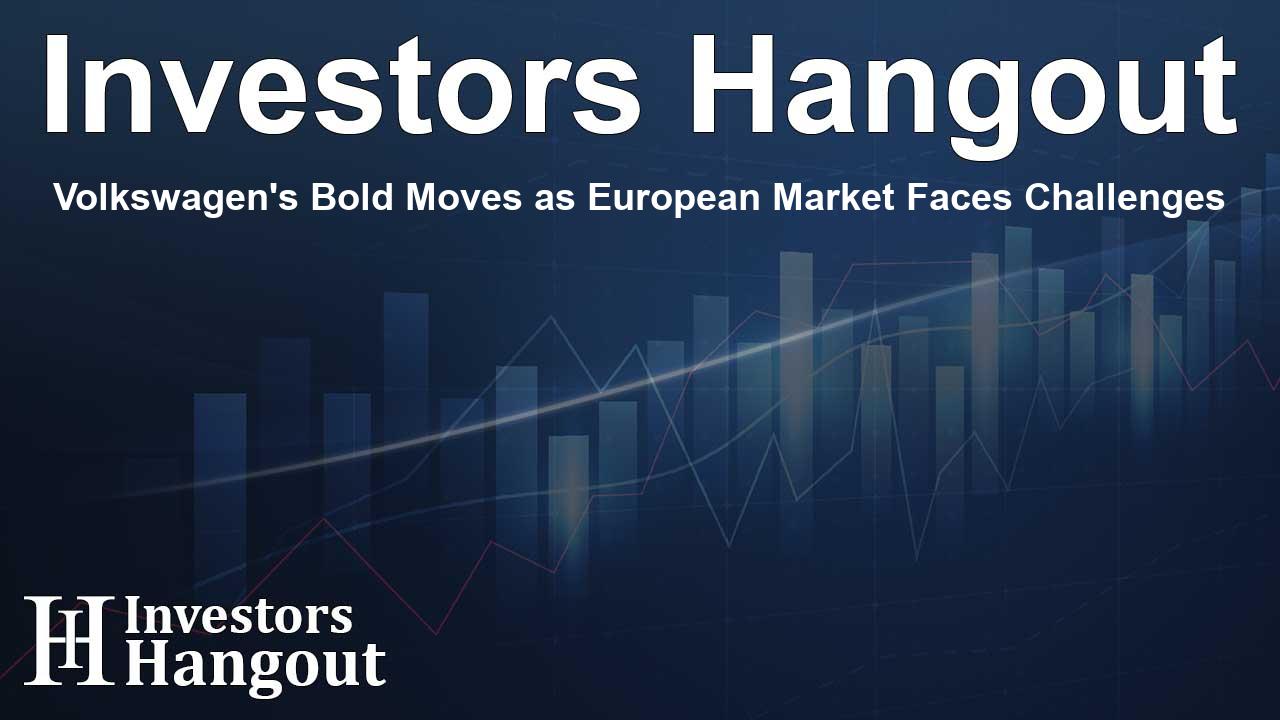Volkswagen's Bold Moves as European Market Faces Challenges

Understanding Volkswagen's Current Challenges in Europe
Volkswagen, a leading name in the automotive industry, is currently facing significant hurdles in the European market. The company's CEO, Oliver Blume, has emphasized the need for profound changes within the business as it grapples with shrinking market share amid growing competition.
The Competitive Landscape in Europe
In a recent interview with Bild am Sonntag, Blume candidly discussed the challenges being faced by Volkswagen. He noted that the once-thriving European market has seen a decline, stating that "the pie has become smaller, and we have more guests at the table." This metaphor signals the increasing competition from various manufacturers, particularly newcomers from Asia, who are aggressively entering the European market.
Impact of New Competitors
The entry of these new players has intensified the competition, making it harder for traditional manufacturers like Volkswagen to maintain their market position. As fewer cars are sold across Europe, the need for flexibility and adaptation becomes more pressing.
Volkswagen's Strategic Response
In response to these challenges, Volkswagen is contemplating drastic measures, including the potential closure of factories in Germany. This move is a part of a broader strategy to implement a cost-cutting plan that aims to save 10 billion euros (approximately $11 billion). These steps indicate a significant shift in operations and business strategy for the carmaker.
Examining the Cost-Cutting Plan
The cost-cutting initiative may include ending job guarantees at six plants, highlighting the gravity of the situation the company faces. The decision is not taken lightly as it affects numerous employees and the company's longstanding presence in Germany.
Looking Ahead: Volkswagen's Future in European Markets
As Volkswagen navigates these turbulent times, the focus will not only be on managing current challenges but also on re-establishing its market presence and competitiveness. The company is determined to adapt to the changing landscape while balancing the needs of its workforce and long-term sustainability.
Frequently Asked Questions
What challenges is Volkswagen facing in the European market?
Volkswagen is experiencing a shrinking market and increased competition, particularly from Asian automakers.
What is Volkswagen's CEO planning in response to these challenges?
CEO Oliver Blume is pushing for significant cutbacks, including the potential closure of factories in Germany to adapt to market conditions.
How is Volkswagen's cost-cutting plan structured?
The plan aims to save 10 billion euros, which may involve closing factories and reducing job guarantees at various plants.
What are the implications of new competitors entering the market?
The introduction of new competitors is making it more difficult for established players like Volkswagen to maintain their market share.
What future strategies might Volkswagen employ?
Volkswagen will likely focus on re-establishing competitiveness while navigating current economic challenges and workforce considerations.
About Investors Hangout
Investors Hangout is a leading online stock forum for financial discussion and learning, offering a wide range of free tools and resources. It draws in traders of all levels, who exchange market knowledge, investigate trading tactics, and keep an eye on industry developments in real time. Featuring financial articles, stock message boards, quotes, charts, company profiles, and live news updates. Through cooperative learning and a wealth of informational resources, it helps users from novices creating their first portfolios to experts honing their techniques. Join Investors Hangout today: https://investorshangout.com/
Disclaimer: The content of this article is solely for general informational purposes only; it does not represent legal, financial, or investment advice. Investors Hangout does not offer financial advice; the author is not a licensed financial advisor. Consult a qualified advisor before making any financial or investment decisions based on this article. The author's interpretation of publicly available data shapes the opinions presented here; as a result, they should not be taken as advice to purchase, sell, or hold any securities mentioned or any other investments. The author does not guarantee the accuracy, completeness, or timeliness of any material, providing it "as is." Information and market conditions may change; past performance is not indicative of future outcomes. If any of the material offered here is inaccurate, please contact us for corrections.